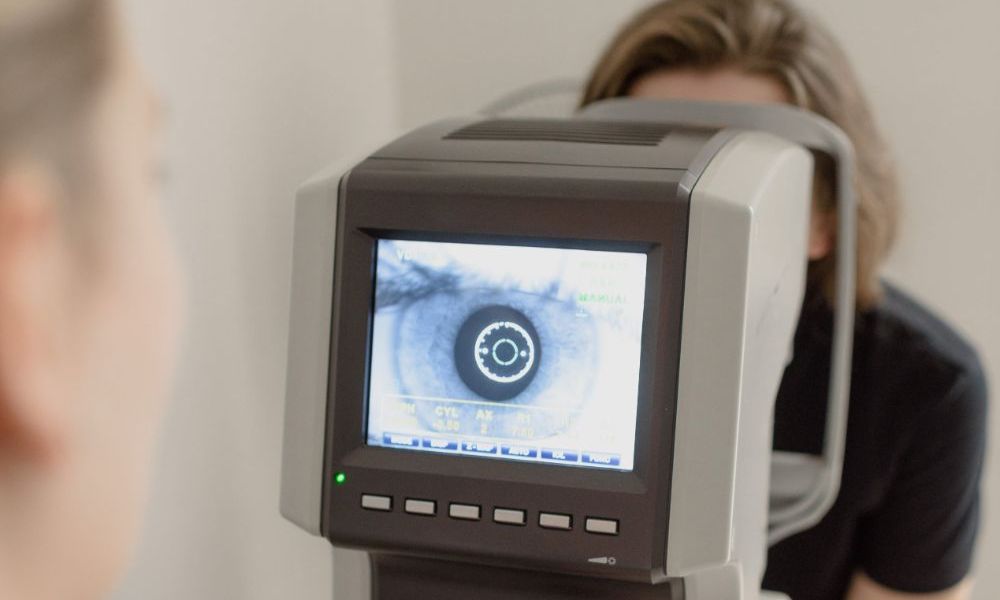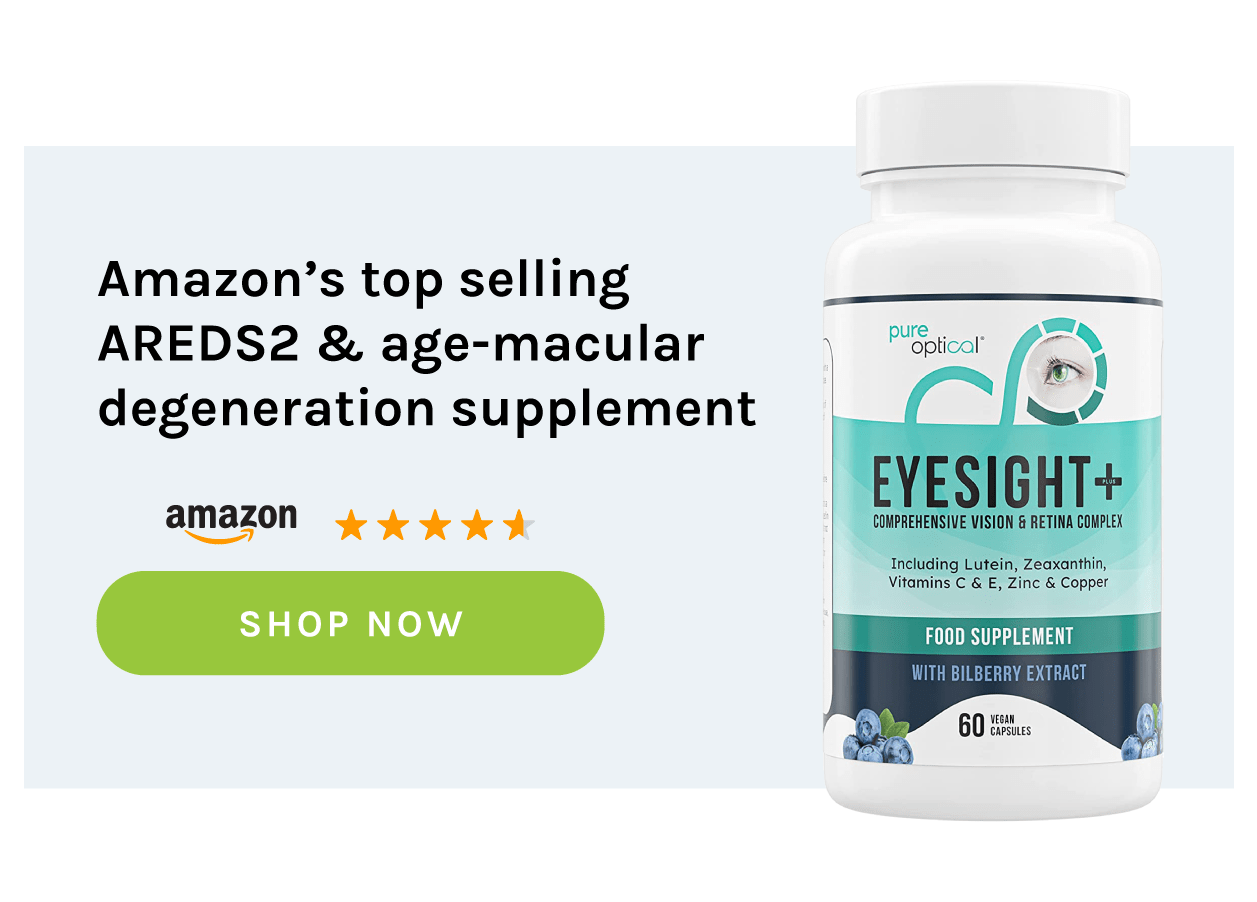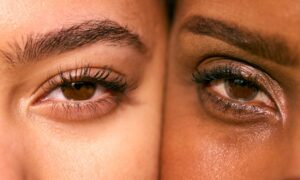In an era where visual cues dominate our experiences, from digital screens to the world around us, the health of our eyes becomes paramount.
Through understanding and proactive measures, the onset of this disease can often be delayed, if not entirely prevented. Recognising the importance of staving off macular degeneration not only pertains to preserving vision but also to ensuring a life of vibrancy, clarity, and independence.
What is macular degeneration?
Macular degeneration is an ocular disease that targets the central part of the retina, known as the macula. This region of the eye is crucial for tasks requiring sharp vision, such as reading, driving, and recognising faces. When the macula deteriorates, so does our central vision.
There are two main types of macular degeneration
- Dry macular degeneration: This is the most common form, accounting for about 90% of cases. It involves the gradual thinning of the macula, leading to the formation of tiny clumps known as drusen. These clumps, a natural byproduct of aging, grow in number and size over time, causing slow and steady vision loss.
- Wet macular degeneration: Less common but more severe, wet macular degeneration results from the abnormal growth of blood vessels beneath the retina. These vessels leak blood and fluid, leading to rapid and significant vision loss.
More information: Which Is Worse – Dry or Wet Macular Degeneration?
Common signs and symptoms to be aware of include
- A dark or blurry spot in the center of your vision.
- Colors appear less vibrant or more washed out.
- Difficulty adapting to low light levels, making evening tasks challenging.
- Straight lines, like the edge of a door or the text in a book, appear bent or wavy.
Key risk factors include
- Advanced age, with individuals over 60 at a heightened risk.
- Genetic predispositions or a family history of the disease.
- Smoking, which can double the risk.
- Excessive exposure to sunlight, especially without protective eyewear.
- Certain racial backgrounds, with Caucasians being at a higher risk than African-Americans or Hispanics/Latinos.

The importance of prevention
While treatments can manage macular degeneration to some extent, there is no definitive cure. Hence, understanding the profound implications of this disease underscores the urgency of prevention.
- The consequences of macular degeneration are far-reaching. Central vision loss can impede basic daily tasks, such as reading, recognising loved ones, or even navigating familiar environments. This loss can lead to decreased independence and confidence, often culminating in social isolation.
- The impact on quality of life is profound. Activities that bring joy, like painting, sewing, or even simple pleasures like watching a movie, become daunting. These challenges often lead to emotional and psychological repercussions, including depression and anxiety.
- The economic and personal costs are tangible. From the need for specialized treatments and vision aids to potential job loss due to impaired vision, the financial implications can be significant. Furthermore, caregivers and family members often need to adjust their lives, leading to secondary personal and economic impacts.
In sum, the importance of understanding and preventing macular degeneration is undeniable. It’s not just about preserving sight, but also about maintaining a fulfilling and independent life.
How to prevent macular degeneration

Diet and nutrition
The old adage, “You are what you eat,” couldn’t be more accurate when discussing eye health. Maintaining a balanced diet ensures that your eyes receive the essential nutrients they need for optimal function.
Foods that promote eye health:
- Leafy greens: Spinach, kale, and collard greens are high in lutein and zeaxanthin, compounds directly linked to a decreased risk of macular degeneration and other eye issues.
- Oily fish: Sardines, mackerel, salmon, and tuna are rich in omega-3 fatty acids. These fats are integral for the maintenance of the eye’s cell structure.
- Eggs: The yolk is a prime source of both lutein and zeaxanthin, along with healthy fats.
- Oranges and citrus fruits: These are loaded with vitamin C, an antioxidant essential for eye health.
Antioxidants combat oxidative stress, which can injure the retinal cells. Some of the best food sources for antioxidants include:
- Berries, particularly blueberries and strawberries.
- Beans and legumes, like kidney beans.
- Nuts, especially almonds and walnuts.
- Grapes, particularly the red and purple varieties.
Read more: What Foods Should Be Avoided With Macular Degeneration?
Supplements
For those with dietary restrictions or particular deficiencies, supplements are a must-have. When considering supplements, it’s paramount to consult an ophthalmologist or general practitioner. They can provide guidance on recommended dosages and ensure no interactions with existing medications. Some of the key supplements beneficial for the eyes include:
- Lutein and zeaxanthin.
- Omega-3 fatty acids.
- Vitamin C, E, and A.
- Zinc and copper.
Supplements like Eyesight Plus cover your daily intake of recommended Lutein and Zeaxanthin, according to the AREDS2 study.
What is the AREDS2 study?
The Age-Related Eye Disease Study 2 (AREDS2) was a major clinical trial sponsored by the National Eye Institute, part of the National Institutes of Health. This study was a follow-up to the original AREDS research and aimed to refine the understanding of the nutritional factors that influence the progression of age-related macular degeneration (AMD) and other eye conditions. The AREDS2 study, conducted over five years, included thousands of participants at risk of advanced AMD.
Key findings from the AREDS2 study:
The AREDS2 study had several critical outcomes that have since shaped the formulation of eye health supplements:
- Modification of the original AREDS formula: The original AREDS study found that a combination of antioxidants and zinc could reduce the risk of progression to advanced AMD. AREDS2 tested modifications to this formula by adding lutein and zeaxanthin and removing beta-carotene, which was found to be associated with an increased risk of lung cancer in smokers.
- Introduction of Omega-3 Fatty Acids: AREDS2 also investigated the effects of adding omega-3 fatty acids (DHA and EPA) to the supplement formula. Although omega-3s did not show a statistically significant effect on AMD progression in the study, they are known to support general eye health.
- Lutein and Zeaxanthin as a Safer Alternative: The study confirmed that lutein and zeaxanthin could be safer alternatives to beta-carotene, especially for individuals who are smokers or former smokers.
- Validation of Zinc and Copper: While the AREDS2 did explore different dosages of zinc, it continued to endorse the inclusion of zinc and a small amount of copper in the supplement formula to prevent copper deficiency anaemia, which can result from high levels of zinc intake alone.
Smoking
It’s no revelation that smoking harms the body, but its detrimental effects on eye health are often overlooked. Smoking heightens the risk of macular degeneration, cataracts, and damage to the optic nerve. The oxidative stress and reduction of blood flow to the eyes compound these risks.
For those looking to quit smoking:
- Consider nicotine patches, gums, or lozenges as replacement therapy.
- Cognitive behavioral therapy can address the psychological aspects of addiction.
- Engage in support groups and leverage smartphone apps dedicated to quitting.

Sun exposure
While the sun is vital for vitamin D production, its UV rays can be detrimental to the eyes. Chronic UV exposure accelerates the onset of cataracts and can heighten the risk of macular degeneration.
Protective measures include:
- Investing in high-quality sunglasses that block 100% of UVA and UVB rays.
- Utilizing wide-brimmed hats to shield the face and eyes.
- Avoiding direct sunlight between 10 am and 4 pm, when UV radiation peaks.
Regular eye tests
Routine eye examinations play a crucial role in early detection. As macular degeneration often begins unnoticed, catching it early can lead to more effective management.
For most adults, an eye test every two years is advised. However, if you’re at higher risk – due to age, family history, or other factors – annual checks might be preferable. During an eye exam, expect a vision acuity test, pressure testing, and a detailed examination of the retina.
Blood pressure checks
Hypertension, or high blood pressure, isn’t just a threat to your heart; it jeopardizes your eyes too. Elevated blood pressure can strain the minute vessels in the retina.
Guidelines to maintain optimal blood pressure include:
- Consuming a balanced diet with limited salt.
- Engaging in regular physical activity.
- Regularly monitoring blood pressure, especially if there’s a family history.

Exercise
Physical activity is a cornerstone of health, including that of the eyes. Regular exercise bolsters blood circulation, ensuring adequate oxygen and nutrients reach the eyes. Furthermore, activities like walking, swimming, or cycling can aid in maintaining a healthy weight, reducing the risk of diabetes – a condition directly linked to eye diseases.
Other preventative measures
Managing co-existing health conditions, especially diabetes, is crucial. Elevated blood sugar can damage the tiny blood vessels in the retina, augmenting the risk of macular degeneration. Adhering to prescribed treatments, regular health check-ups, and lifestyle modifications can be instrumental in safeguarding eye health.
Don’t let macular degeneration take over your life
Our vision, arguably one of our most treasured senses, becomes even more important as we navigate the nuances of our day-to-day lives. The onset of macular degeneration poses not only a threat to our vision but also to the very quality of life we cherish. But knowledge is power, and understanding how to combat this disease is the first step in taking control.
Key takeaways
- Diet and Nutrition: Ensure a balanced diet, prioritizing foods rich in antioxidants, lutein, and zeaxanthin like leafy greens, oily fish, eggs, and citrus fruits.
- Supplements: When dietary sources aren’t enough, or for added protection, consider supplements but only under professional guidance.
- Ditch the Cigarette: If you smoke, quitting is one of the best choices for your eyes and overall health.
- Shield from the Sun: Sun protection isn’t just for your skin. High-quality sunglasses and protective hats are a must.
- Regular Eye Exams: Schedule consistent eye tests for early detection and optimal eye health management.
- Blood Pressure Management: Keep blood pressure in check, benefiting both your cardiovascular and ocular systems.
- Stay Active: Engage in regular physical activities to boost overall health and specifically, eye health.
- Manage Coexisting Conditions: Particularly diabetes, to ensure it doesn’t exacerbate potential eye issues.
Macular degeneration, like many health conditions, doesn’t stem from a single cause. It’s the culmination of genetics, lifestyle choices, and environmental factors. This means that preventing or delaying its onset requires a multi-pronged strategy.
In the face of a potential threat to our vision, adopting a comprehensive and robust prevention strategy can make all the difference. Remember, every step, no matter how small, counts. Through informed and proactive measures, it’s entirely possible to safeguard our vision and enjoy the beauty of the world around us for years to come.





